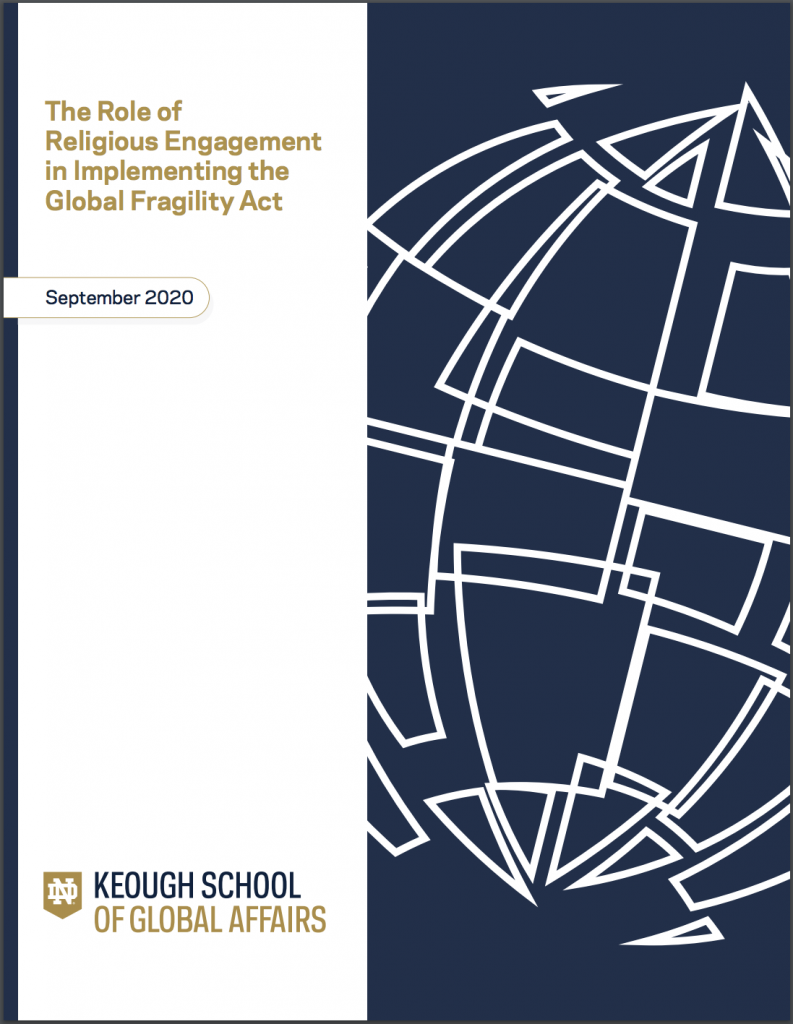The Role of Religious Engagement in Implementing the Global Fragility Act
Authors: Gerard Powers, Ebrahim Moosa, R. Scott Appleby
Publication info: Keough School of Global Affairs, September 2020
Full text: Read the full report at curate.nd.edu
Abstract
The bipartisan Global Fragility Act of 2019 mandates strategic coordination across the federal government to strengthen the capacity of the United States to prevent violence and increase stability in areas of the world most vulnerable to conflict. Key agencies must jointly establish a comprehensive 10-year “Global Fragility Strategy” and select priority countries and regions in which to implement the strategy. Among its requirements, the strategy must identify approaches to engage “civil society and local partners in the design, implementation and monitoring of [US] programs.”
To effectively fulfill the local engagement directives, the US Government must recognize the cultural, social, and political role of religion and religious actors in the countries and regions selected for implementation. Effective engagement with religious actors requires: (1) understanding the complex role of religion in fragile states; (2) assessing the impact of US policies and programs on religious dynamics; (3) respecting the integrity and autonomy of religious actors; (4) working both on an inter- and intra-religious basis; (5) supporting the distribution of conflict-sensitive aid through faith-based organizations; and (6) enhancing capacity for religious engagement across federal agencies.
Faculty from the Keough School and two of its institutes—the Kroc Institute for International Peace Studies and the Ansari Institute for Global Engagement with Religion—contributed to this report.
Recommended citation
Powers, Gerard, Ebrahim Moosa, and R. Scott Appleby. The Role of Religious Engagement in Implementing the Global Fragility Act. Notre Dame, IN: Keough School of Global Affairs, 2020. https://doi.org/10.7274/r0-jfxn-wt87
Topics
Related
Madrasa Discourses Project
The Keough School’s Madrasa Discourses project works to equip Islamic religious leaders with tools necessary to engage pluralism, modern science, and technological advances.
Ansari Institute for Global Engagement with Religion
The Keough School’s Ansari Institute for Global Engagement with Religion is dedicated to studying, learning from, and collaborating with religious communities worldwide.
Kroc Cast Podcast Episode Eight
The Kroc Cast podcast (Episode 8) features faculty members discussing efforts to engage madrasa scholars in conversations about religion, society and epistemology.
